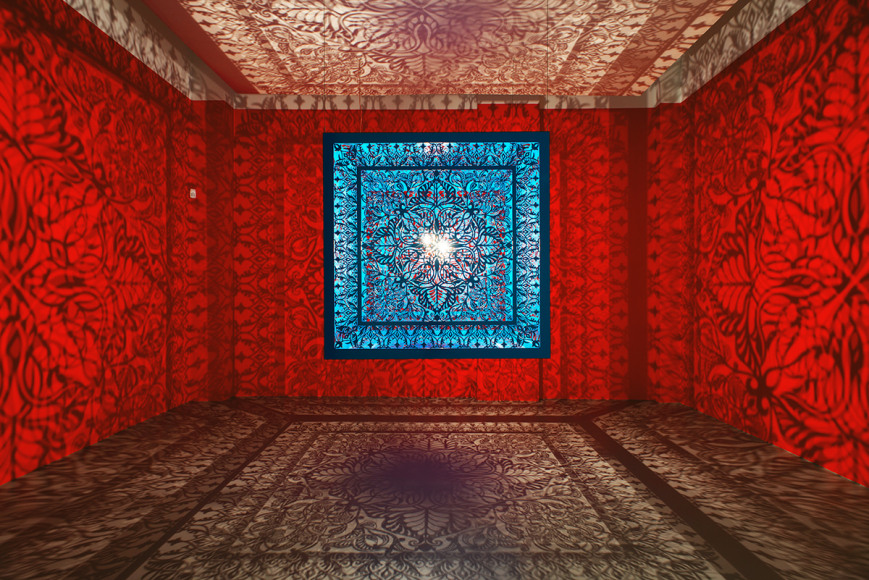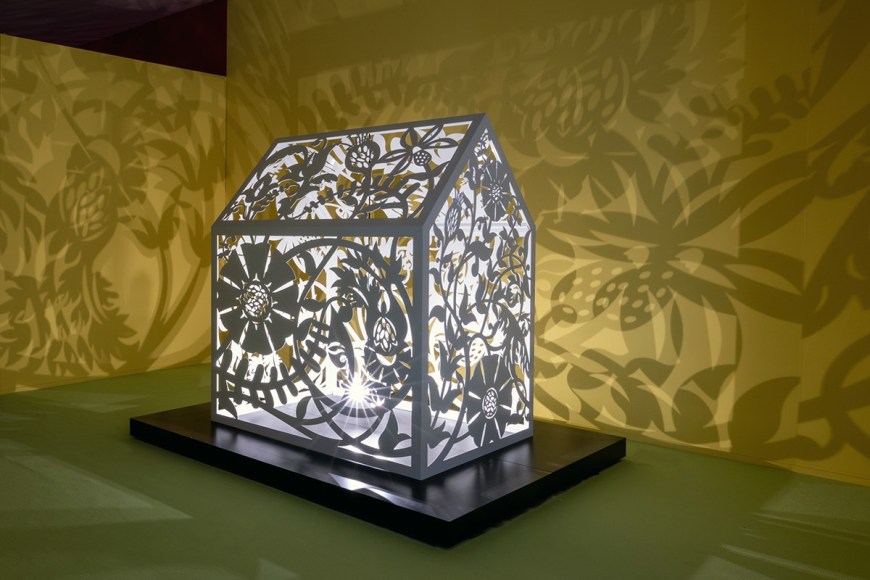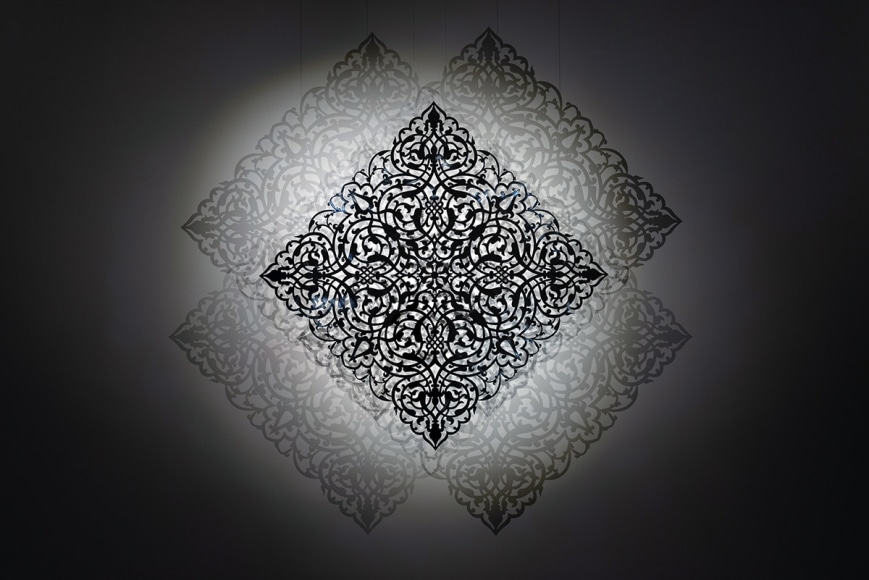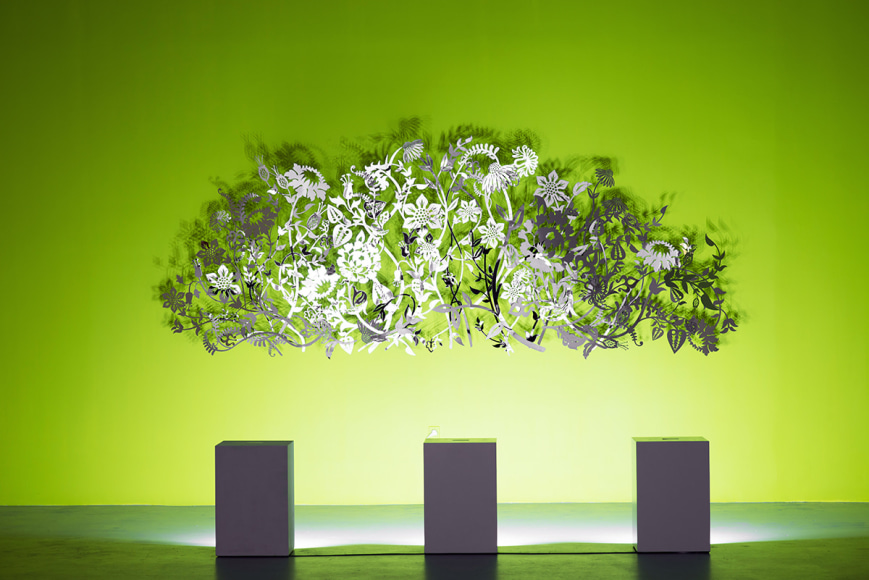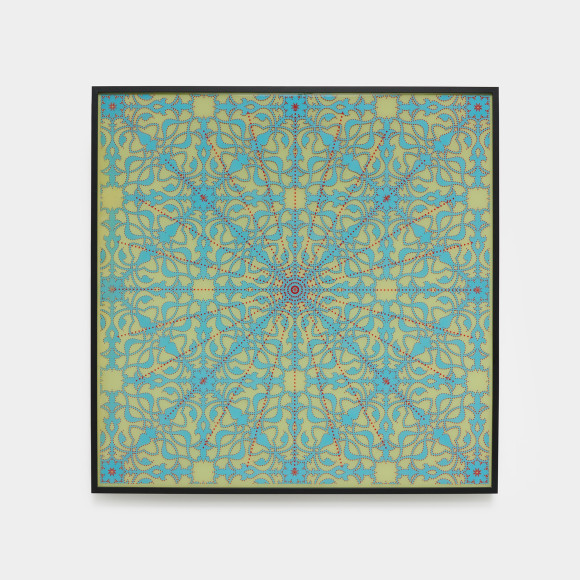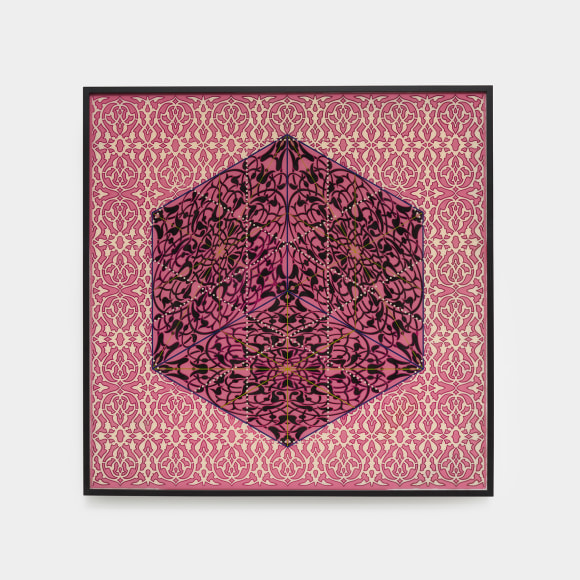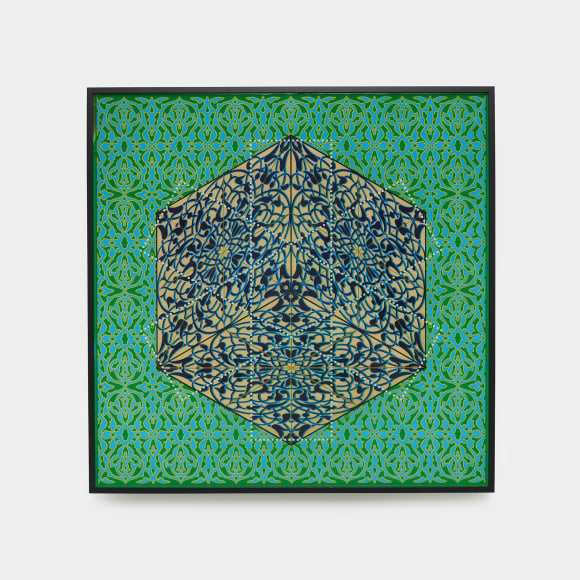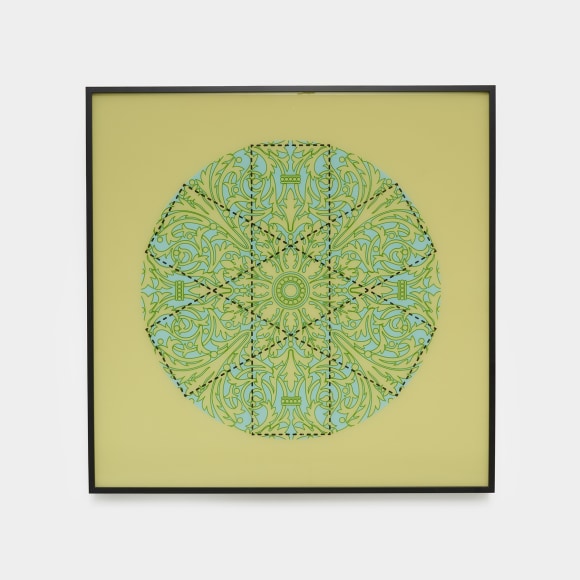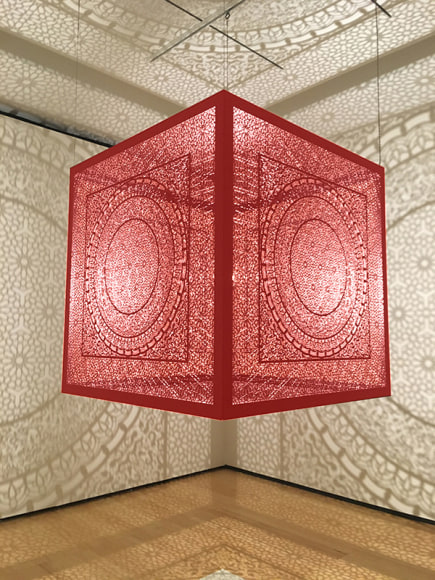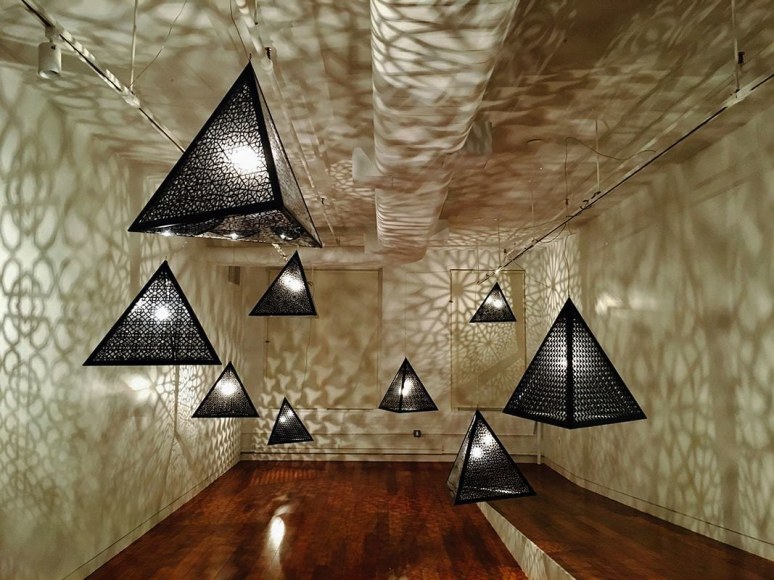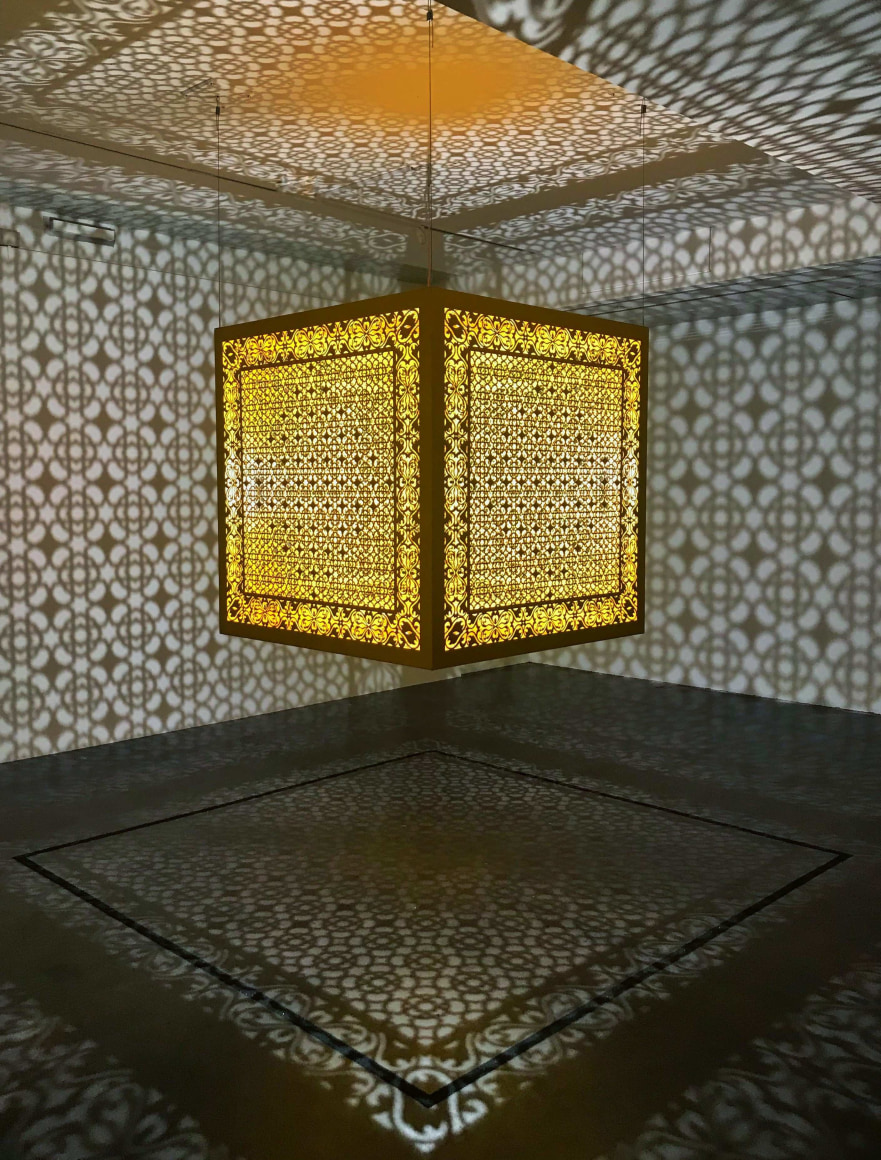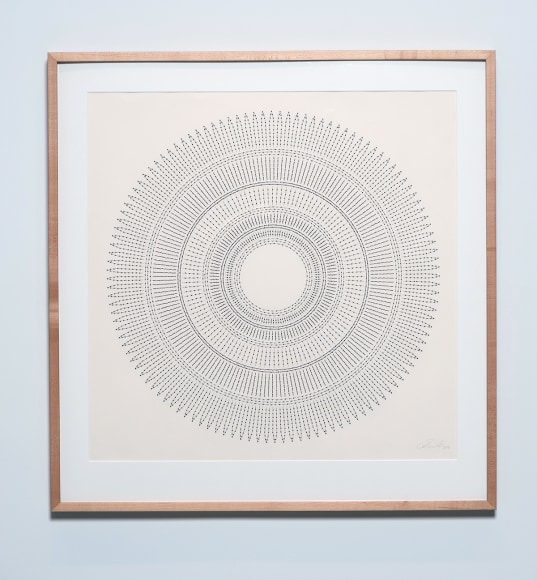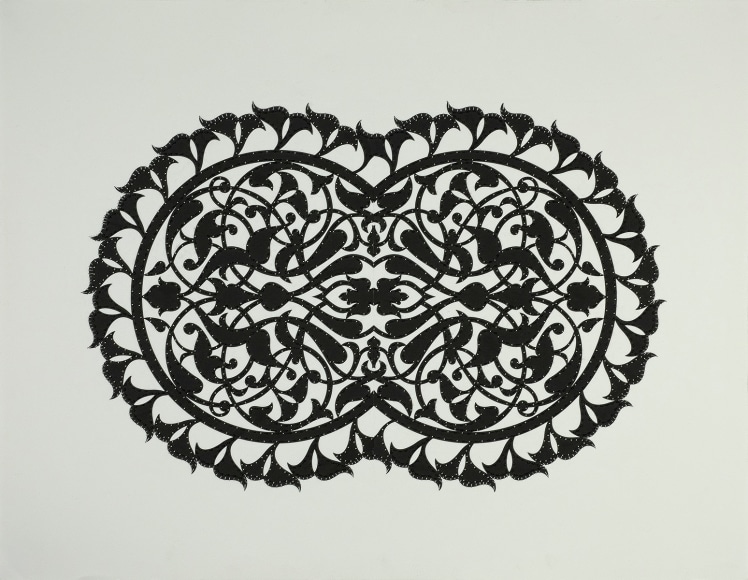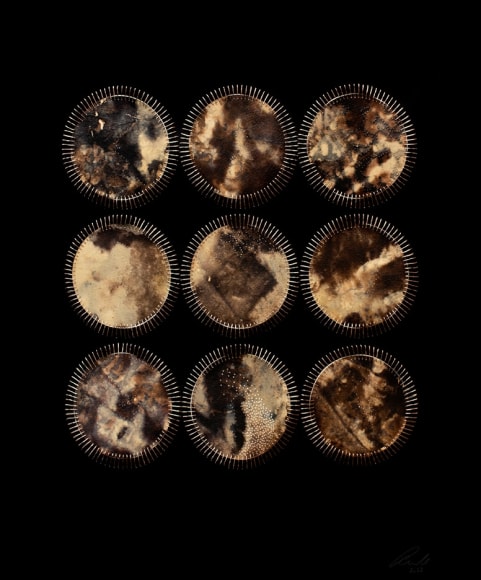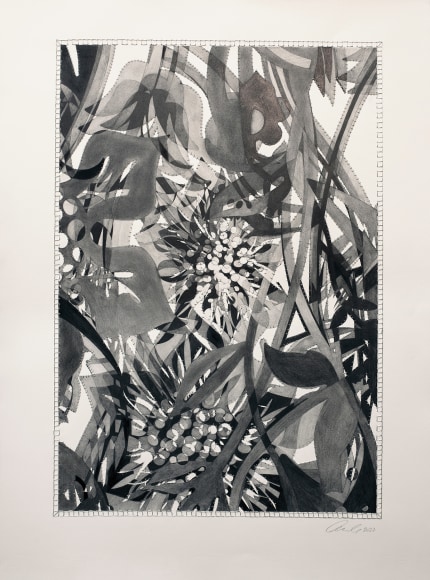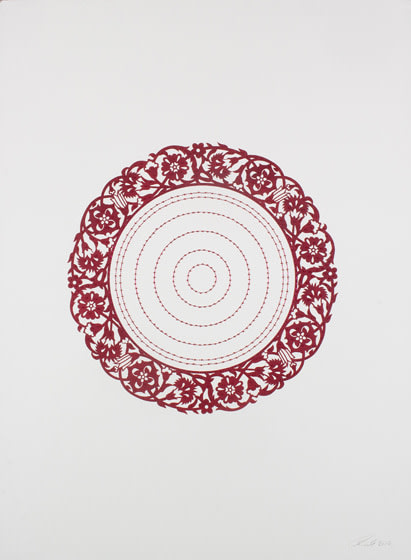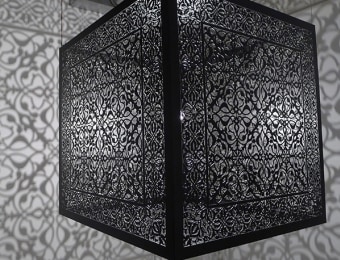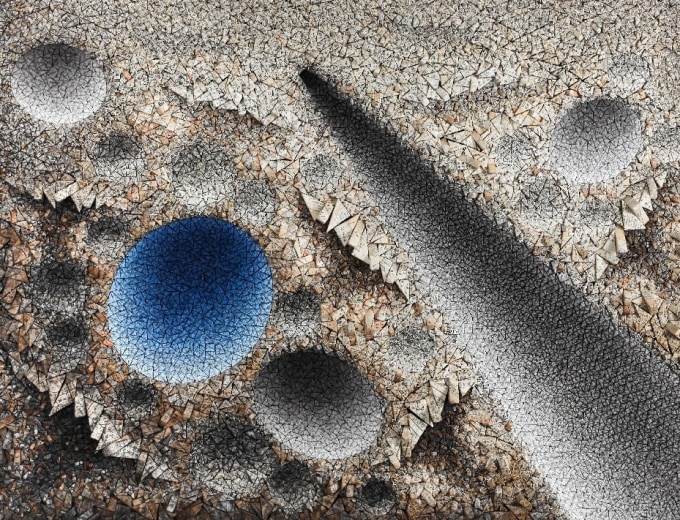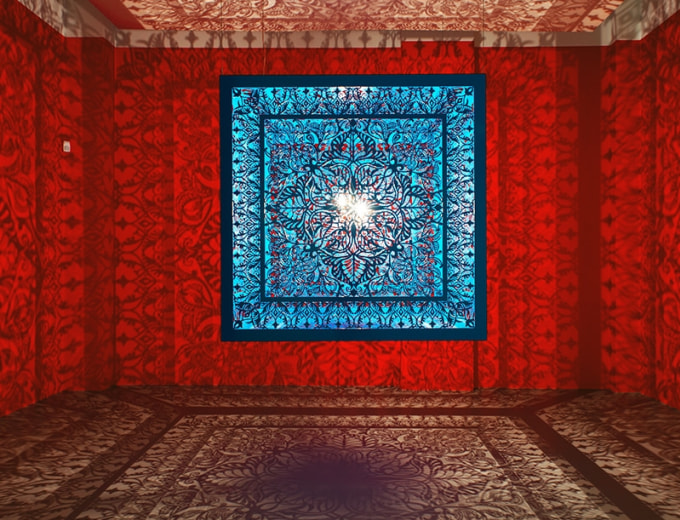
Anila Quayyum Agha (b. 1965, Lahore, Pakistan) is a Pakistani-American artist who works in a cross-disciplinary fashion with mixed media. She explores global politics, cultural multiplicity, mass media, and social and gender roles. As a result, her artwork is a conceptually challenging mixture of thought, artistic action and social experience. Since 2019 her work has been featured in thirteen solo museum exhibitions. Her work was most recently on view in the group exhibition Reorientations: Europe and the Islamic Arts, 1851 to the Present at Kunsthaus Zurich. She currently has two sculptural works on view through September 17, 2023, at Royal Botanic Gardens Kew in the U.K.
Agha is internationally recognized for her large-scale cube installations that use light and pattern to immerse viewers in shared experiences and inclusive spaces. The patterns Agha laser cuts into the lacquered-steel cubes are a reinterpretation of floral and geometric motifs found in Islamic art and architecture in Asia and Africa. Suspended and lit from within, the cubes cast elaborate floor-to-ceiling shadows that transform the surrounding environment, alluding to the richly ornamented public spaces such as mosques that Agha was excluded from as a female growing up in Lahore.
In addition to her suspended installations, Agha creates wall-mounted two-dimensional works that play with light, shadow and pattern. Work in her Flowers series (2018) is composed of elaborately laser-cut encaustic paper adorned with light-reflecting embroidery and beads. These exquisitely detailed drawings are framed within shadow boxes, allowing light to pass through the intricate designs to cast patterned shadows on the walls. More recent work includes resin paintings in which Agha radically expands her use of color and explores pattern in new ways. She departs from her characteristic streamlined palettes in favor of vivid hues inspired by the high-contrast color combinations popular in South Asian and African textiles.
After arriving in the U.S. from Pakistan in 2000, Agha attended graduate school to study fiber arts. Over time, she expanded her practice to include other mediums as her work became increasingly sculptural. While still a student, Agha was frequently told that as a woman, particularly a woman of color and an immigrant, she would never advance her career if she used techniques associated with craft or visual elements unique to Islamic culture. But after seeing exhibitions of the subversive embroidered paintings of Egyptian artist Ghada Amer, the handsewn story quilts by African American artist Faith Ringgold and the multimedia installations created using textile techniques by American artists Anne Wilson and Ann Hamilton, Agha knew there was space for the kind of art she wanted to make, which was authentic to her life experiences while also conveying universal truths.
Anila Quayyum Agha received a BFA from the National College of Arts, Lahore, and an MFA from the University of North Texas. She resides in Indianapolis, Indiana, and Augusta, Georgia, where she is a professor and the Eminent Morris Scholar of Fine Art at Augusta University.
Agha’s work has been exhibited at Asia Society, New York; Peabody Essex Museum, Salem, Massachusetts; National Sculpture Museum, Valladolid, Spain; Chimei Museum of Art, Tainan City, Taiwan; Dallas Contemporary art museum, Texas; Cincinnati Art Museum, Ohio; the Columbia Museum of Art, South Carolina; the Amon Carter Museum of American Art, Fort Worth, Texas; the University of New México Art Museum, Albuquerque; Jule Collins Smith Museum, Auburn, Alabama; Toledo Museum of Art, Ohio; Philbrook Museum of Art, Tulsa; and the Museum of Contemporary Art Jacksonville, Florida, among many others.
Major awards include the 2019 Painters and Sculptors Grant from the Joan Mitchell Foundation and the 2021 SARF (Smithsonian Artist Research Fellowship). In 2019, Agha’s work was included in She Persists at the Venice Biennale.
Lives and works in Augusta, Georgia, and Indianapolis, Indiana.

